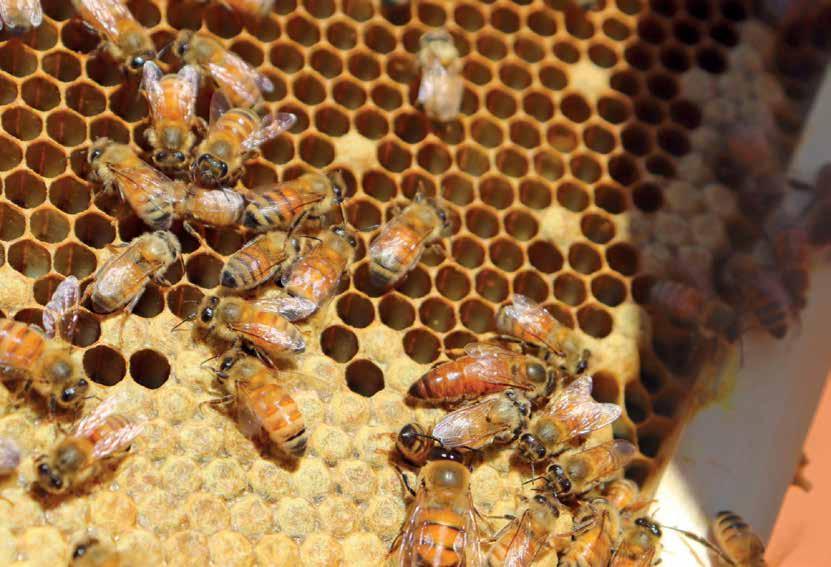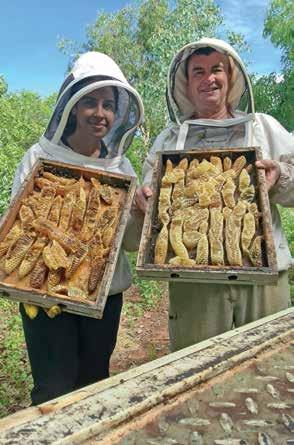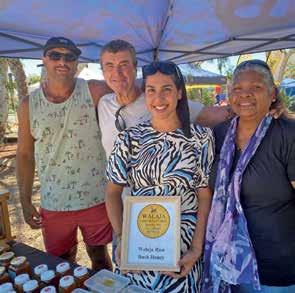
1 minute read
Kimberley Bush Honey

Harvested in the heart of the Kimberley's untouched wilderness, Walaja Raw Bush Honey is a pure and natural product.
Locally owned Walaja Raw Bush
Honey is collected and bottled in the beautiful and pristine surroundings of Broome, Western Australia. Dubbed 'the last wilderness', the Kimberley has no industry or other pollutants, making our honey as tasty and healthy as it gets. Our honey is 100% organic, natural, unprocessed, and contains no additives.
Roebuck Cattle Station, with a land mass of 750,000 acres, surrounds the historic pearling town of Broome and is owned and managed by the Yawuru Native Title Holders. This pristine and fertile parcel of land boasts several native trees that flower at different times of the year. The Kimberley region is blessed as a beekeeping area in many ways. It is disease free, and our bees thrive in the warm tropical climate. Free from industry and chemicals, our beehives live in perfect harmony with free-range cattle and the sweet-faced wallabies that seek shade and water from the tropical climate.

The main sources of nectar in the dry season for the bees are the Saltwater Paperbark or Melaleuca which flowers from Easter to September and the Wickham's Grevillea which flowers from May to July. Both nectar sources are intense, abundant, and when the flow is on, the bees thrive, collecting nothing else, thus making the honey monofloral.
When the dry season nectar flow dwindles, many of our bees are moved onto a watermelon farm south of Broome to pollinate the crops. Here the bees are primarily employed to boost the melon grower's annual yield by pollinating the small golden melon flower, but a sweet little bonus exists in the hives and with pollination complete the watermelon nectar is harvested. Like the Kimberley Melaleuca and Grevillea nectar, the watermelon honey has a distinctly unique taste.
Bloodwood, or Tropical Eucalypt, produces nectar that is dark and has a strong and unique flavour with a caramel aftertaste. Nectar flows during the build-up to the wet season, from November, and the trees continue to flower until March.
The Appleby family, beekeeping team father David and son Simon, with mother Dianne and daughter Naomi supporting the honey production, have built up to 450 colonies all situated within Yawuru Country on Roebuck Plains Station. Visit kimberleybushhoney.com.au















